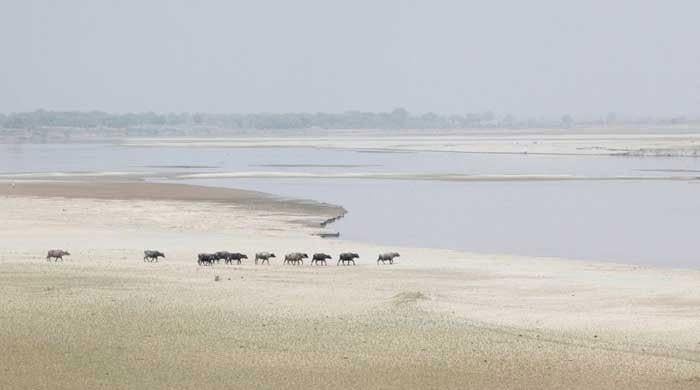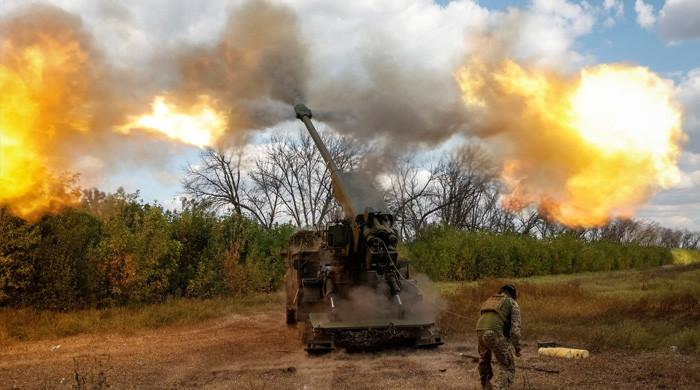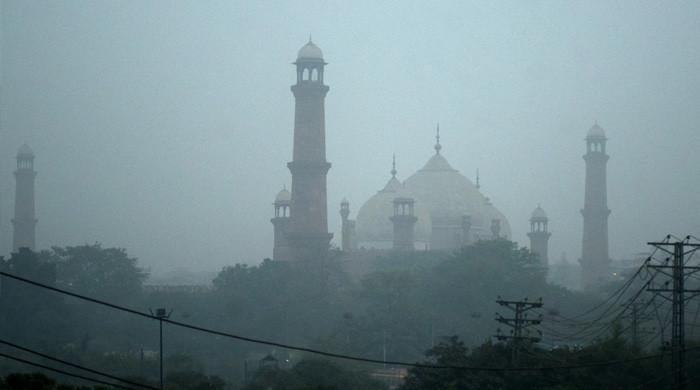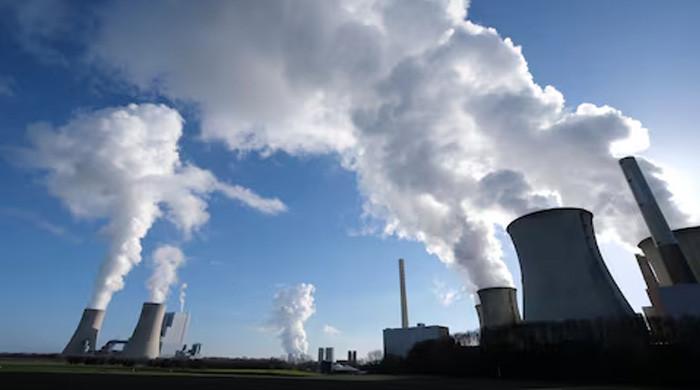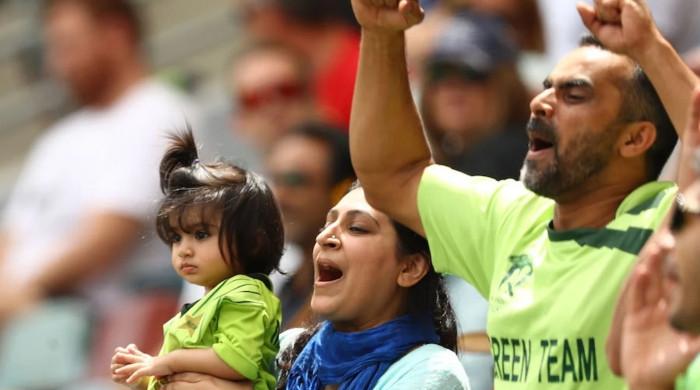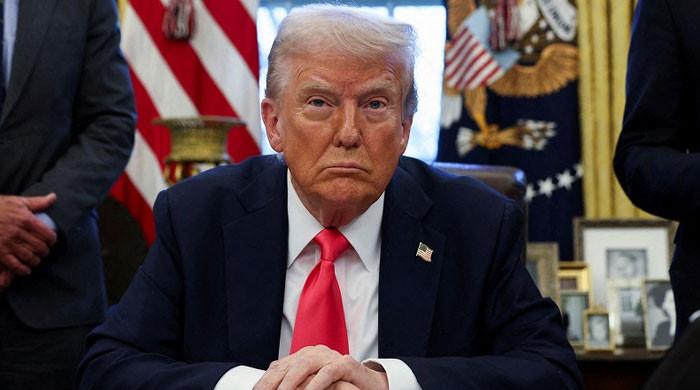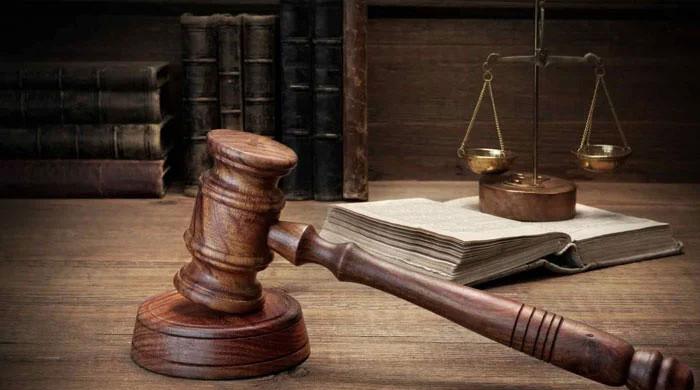Why is Pakistan a dangerous country for journalists?
Threats to journalists come from terror networks, pressure groups, state-controlled agencies, influential people, even political parties
November 08, 2022
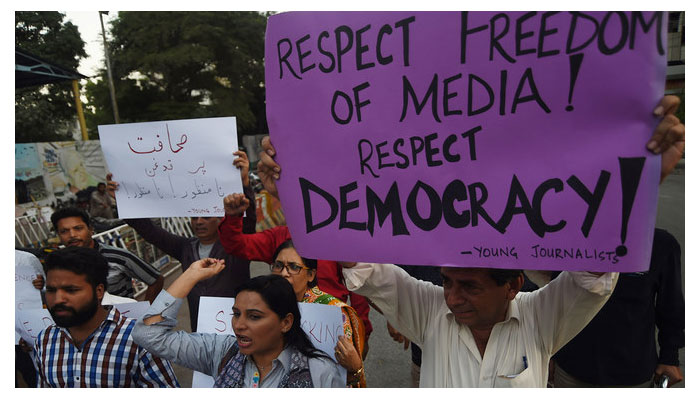
Journalist Arshad Sharif’s mysterious killing in Kenya could be an eye-opener for all journalists and media practitioners. His murder added to the long list of journalists killed in the last two decades here but it is the first case of a Pakistani journalist being killed abroad.
While the investigation is underway, it is premature to reach any conclusion as to who killed him and why; however, one thing is certain the investigative journalist was targeted for what he had been reporting, whether we agree with his work or not.
The level of threats facing Pakistani media from print to digital is unprecedented due to the lack of any safety coverage — life insurance in recent times despite the so-called democratic order in place since 2008. The threats to journalists come from different quarters like terror networks, pressure groups, state-controlled agencies, influential people, and even the leaders of mainstream political parties.
One was expecting a way forward and more protection and assurance for freedom of the press and the safety of journalists but a look at the number of threats to them and the laws to grab freedom in the last 14 years under the so-called "democracy" came as a big disappointment which could be judged from the fact that the laws in the name of "regulation" resulted in more restrictions and attack on critical voices of dissent. The only positive was the "law" named "Journalist Protection Bill", during the previous government of PTI, but is yet to be enforced. Credit for this surely goes to the then minister for human rights, Shireen Mazari, but even her government, the Ministry of Information, somehow blocked it and to this day still awaits implementation. Had it been enforced with immediate effect then perhaps the cases, including sedition, filed against journalists like Arshad Sharif and others would have not been registered and who knows he might have not had to leave the country.
It is also surprising that on one hand, former prime minister Imran Khan demanded a thorough investigation into the case of investigative journalist Arshad Sharif and rightly expressed his concern about the threats to media and journalists like anchor Imran Riaz Khan, Sabir Shakir, Sami Ibrahim or Jamil Farooqi but on the other hand, he has threatened other journalists and openly named them.
He called those who criticised him in the media "lifafa" journalists or bribe-takers. Such a tone in the past, after the 2013 elections, resulted in the attack on journalists working for Pakistan’s leading tv network, Geo. While PTI chairman has publically accused journalist Saleem Safi of being biased and "lifafa", he has accused journalist Waqar Satti of accusing him of blasphemy. Satti is presently on bail. He also named some other journalists like Hamid Mir and Asma Shirazi. When journalists and media bodies asked him to provide evidence instead of blaming them Khan had little to say.
It is also a fact that under Khan's government from 2018 to April 2022, when his government was ousted through a vote of no confidence, journalists were abducted, attacked, and tortured. Those journalists include Matiullah Jan, Asad Toor, Absar Alam, and others. His government also tried to control the media by amending PECA Act, 2016, and tried to grab the entire media through PECA Ordinance, 2020.
But, it’s not confined to Imran or PTI alone. The PML-N government in 2016, introduced PECA and gave unprecedented power to FIA. The latest reports suggest that some highly controversial powers have again been "secretly assigned" to FIA to target social media activists.
The record of the PDM government in the last six months is not something to be proud of. A record number of "sedition charges" were levelled against journalists/anchors. The regulators like Pakistan Electronic Media Regulatory Authority (PEMRA) have been used to suppress TV channels. While the TV channels were told not to air Imran Khan’s speeches live and put a "delay system", Prime Minister Shehbaz Sharif’s decision to strike down PEMRA’s directive was a decision in the right direction.
In Sindh, political influence provided relief to the "accused" in the murder of two journalists in the cases of Aziz Memon and particularly Nazim Jokio, where a sitting MPA of PPP was the main accused. The way the family of the victim was pressurised and safe passage was provided to the accused including a sitting MPA is highly regrettable. The murder cases of the two journalists are in court and there is little hope for justice as the prosecution has already twisted the cases and the benefit of the doubt would most likely go in the accused’s favour. But, let's hope a better sense prevailed.
As far as cases of journalists’ disappearance and allegations of torture are concerned, fingers are often pointed towards one agency or the other and in some cases, even government looks clueless. Even in the dozens of cases registered against journalists critical of the present government even the government, centre or the provincial had no clue who were the complainants.
Pakistan's record in the cases of "crimes against journalists" is very poor compared to other countries. Judicial commission or so-called inquiries in the previous cases turned out to be nothing but a "cover-up" as happened in the case of the killing of journalists Hayatullah and Saleem Shahzad and so was in the case of assault on senior anchor and columnist, Hamid Mir. So, there is not much optimism that Arshad Sharif’s case would finally end in justice.
Reporting has never been easy in Pakistan for long but in the recent past reporters have become more vulnerable due to their appearance on TV screens and thus become the soft target.
So, what could be done in such a scenario and gloomy picture of threats against journalists is a million-dollar question at a time when they are facing multiple threats from different terrorist outfits, pressure groups, and political leaders on the one hand and powerful quarters on the other.
Pakistani journalists are not alone in this fight for the safety of their peers. International media watch from time to time have raised their concern, sent their missions here, and followed cases of violent attacks on journalists. Some of the immediate steps could be:
- Journalists Safety Bill, which has already been passed both at the centre and in Sindh, should not only be extended to other provinces but be enforced immediately with complete powers and authority.
- The government should facilitate, in consultation with working journalists, a detailed investigation into the deaths of all journalists killed so far but justice has not been done or their cases have not proceeded.
- The government should appoint a "special prosecutor" at the centre and in provinces to exclusively take up and pursue cases of attacks on media and media workers to promote a culture of justice and accountability.
- All media houses must ensure safety coverage like training and life Insurance for all their staff and untrained staff should not be sent for coverage in the conflict zone. Training should be made as a pre-condition.
- Within media houses and newsrooms also safety belts are important as at times they came under attack or even in the case of any natural disaster as well.
- An "Eminent Group of Journalists" should be established to serve as a mediation platform among journalists, media workers, and owners, as well as between media workers and the government to forge consensus on the issue of safety.
- The same group can also play a role to end the polarisation in the media among media groups and journalists as well.
- Journalists should not become a mouthpiece of political parties as by doing so they violate the very basis of journalistic norms and code and also cause a threat to each other's life. In the past also journalists have been accused by peers not only as ‘traitors,’ but at times been attacked on ethnic and sectarian lines.
- The unity of the Pakistan Federal Union of Journalists (PFUJ), once the sole representative body of journalists, is a need of the hour. Thus, a dialogue is needed among them failing which, could result in multiple challenges that media workers are facing today including life and job safety.
- There is an urgent need for a "National Alliance of Media Safety". It should be composed of the Pakistan Federal Union of Journalists, All Pakistan Newspapers Society, Pakistan Broadcasters Association, and other media bodies. NAMC should work on the national action plan on the safety of Pakistani journalists and media and could seek cooperation from International Media watchdogs like IFJ, CJP, and RSF per the UN Action Plan.
Freedom of the press and the safety of journalists and media practitioners is essential for a strong democracy. Pakistan needs a fresh start for media and democracy. Can we do it is a question which needs to be addressed at all levels as without the safety of journalists you not only kill the individual but also the voice of dissent.
Pakistan has come a long way in defeating terrorism to a large extent though threats persist but journalists still are targeted, kidnapped, disappeared, tortured and killed. Journalist Arshad Sharif's case just refreshes the memories of the dangers that still exist and make us one of the most dangerous countries for reporting and dissenting.




